搜索结果: 1-15 共查到“理学 Galaxy”相关记录380条 . 查询时间(0.125 秒)
Academy of Mathematics and Systems Science, CAS Colloquia & Seminars:Tracing the Evolution of SMBHs and Stellar Objects in Galaxy Mergers: A Multi-mass Direct N-body Model
星系合并 SMBH 恒星物体演化 多质量 直接N体模型
font style='font-size:12px;'>
2023/11/13

Team reveals first image of the black hole at our galaxy’s heart(图)
银河系 中心黑洞 第一张图像
font style='font-size:12px;'>
2023/5/22

Scientists have spotted farthest galaxy on record(图)
星系 恒星 天体物理
font style='font-size:12px;'>
2023/6/21
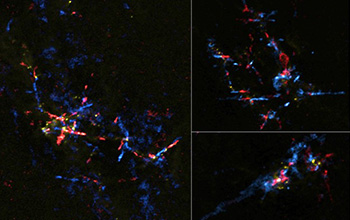
Baby stars hatch from stellar eggs near galaxy’s center(图)
Baby stars hatch stellar eggs near galaxy center
font style='font-size:12px;'>
2021/4/9
Astronomers have found stellar eggs containing baby stars around the center of the Milky Way galaxy. To make the discovery, the scientists used NSF's Atacama Large Millimeter/submillimeter Array (ALMA...
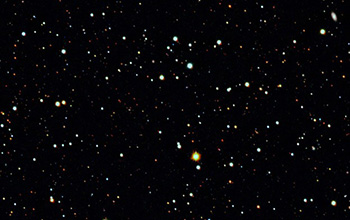
Astronomers detect dark matter halo around ancient dwarf galaxy(图)
Astronomers detect dark matter halo ancient dwarf galaxy
font style='font-size:12px;'>
2021/3/5
The Milky Way is surrounded by dozens of dwarf galaxies thought to be relics of the first galaxies in the universe. Among the most primitive of these galactic fossils is Tucana II -- an ultrafaint dwa...
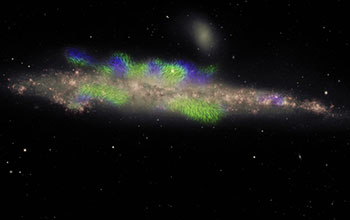
Giant magnetic ropes seen in Whale Galaxy's halo(图)
Giant magnetic ropes seen Whale Galaxy halo
font style='font-size:12px;'>
2020/1/4
Using the National Science Foundation's Karl G. Jansky Very Large Array radio telescope, a team of astronomers has captured for the first time an image of large-scale, coherent, magnetic fields in the...
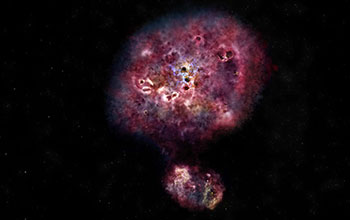
ALMA spots most distant dusty galaxy hidden in plain sight(图)
ALMA spots distant dusty galaxy hidden plain sight
font style='font-size:12px;'>
2019/12/13
Astronomers using the Atacama Large Millimeter/submillimeter Array (ALMA) have spotted the light of a massive galaxy seen only 970 million years after the Big Bang. Called MAMBO-9, it's the most dista...

Virtual 'UniverseMachine' sheds light on galaxy evolution(图)
Virtual UniverseMachine sheds light galaxy evolution
font style='font-size:12px;'>
2019/10/21
How do galaxies such as our Milky Way come into existence? How do they grow and change over time? The science behind galaxy formation has long been a puzzle, but a University of Arizona-led team of sc...
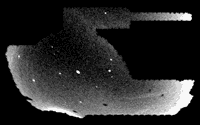
New Stellar Streams Confirm ‘Melting Pot’History of the Galaxy(图)
New Stellar Streams Melting Pot History of the Galaxy
font style='font-size:12px;'>
2018/1/31
Where do the stars in our Galaxy come from? All the stars we see in the night-time sky belong to our Milky Way galaxy, and while most stars were likely born here, in the Milky Way, many appear to have...

IMAGE RELEASE:Shocking Results of Galaxy-Cluster Collisions(图)
Shocking Results Galaxy-Cluster Collisions
font style='font-size:12px;'>
2017/11/23
A giant collision of several galaxy clusters, each containing hundreds of galaxies, has produced this spectacular panorama of shocks and energy. The collisions generated shock waves that set off a cel...
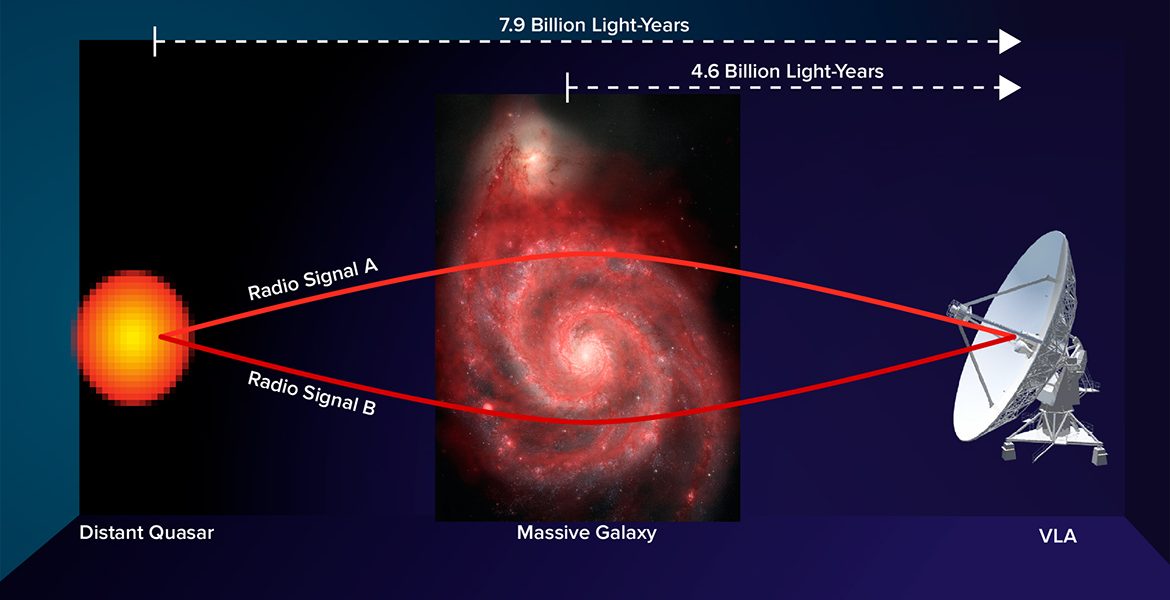
VLA Reveals Distant Galaxy’s Magnetic Field(图)
VLA Distant Galaxy Magnetic Field
font style='font-size:12px;'>
2017/9/5
With the help of a gigantic cosmic lens, astronomers have measured the magnetic field of a galaxy nearly five billion light-years away. The achievement is giving them important new clues about a probl...
VLA Gives New Insight Into Galaxy Cluster’s Spectacular “Mini-Halo”
VLA Galaxy Cluster’s Spectacular Mini-Halo
font style='font-size:12px;'>
2017/7/21
Astronomers using the National Science Foundation’s Karl G. Jansky Very Large Array (VLA) have discovered new details that are helping them decipher the mystery of how giant radio-emitting structures ...
VLA Reveals New Object Near Supermassive Black Hole in Famous Galaxy
VLA New Object Near Supermassive Black Hole Galaxy
font style='font-size:12px;'>
2017/7/20
Pointing the National Science Foundation’s Very Large Array (VLA) at a famous galaxy for the first time in two decades, a team of astronomers got a big surprise, finding that a bright new object had a...
UMass Amherst Astronomers Find Unexpected,Dust-obscured Star Formation in Normal Distant Galaxy
UMass Amherst Astronomers Dust-obscured Star Formation Normal Distant Galaxy
font style='font-size:12px;'>
2017/3/30
Pushing the limits of the largest single-aperture millimeter telescope in the world, and coupling it with gravitational lensing, University of Massachusetts Amherst astronomer Alexandra Pope and colle...
Embryonic cluster galaxy immersed in giant cloud of cold gas
Embryonic cluster galaxy immersed giant cloud of cold gas
font style='font-size:12px;'>
2016/12/13
Astronomers studying a cluster of still-forming protogalaxies seen as they were more than 10 billion years ago have found that a giant galaxy in the center of the cluster is forming from a surprisingl...


